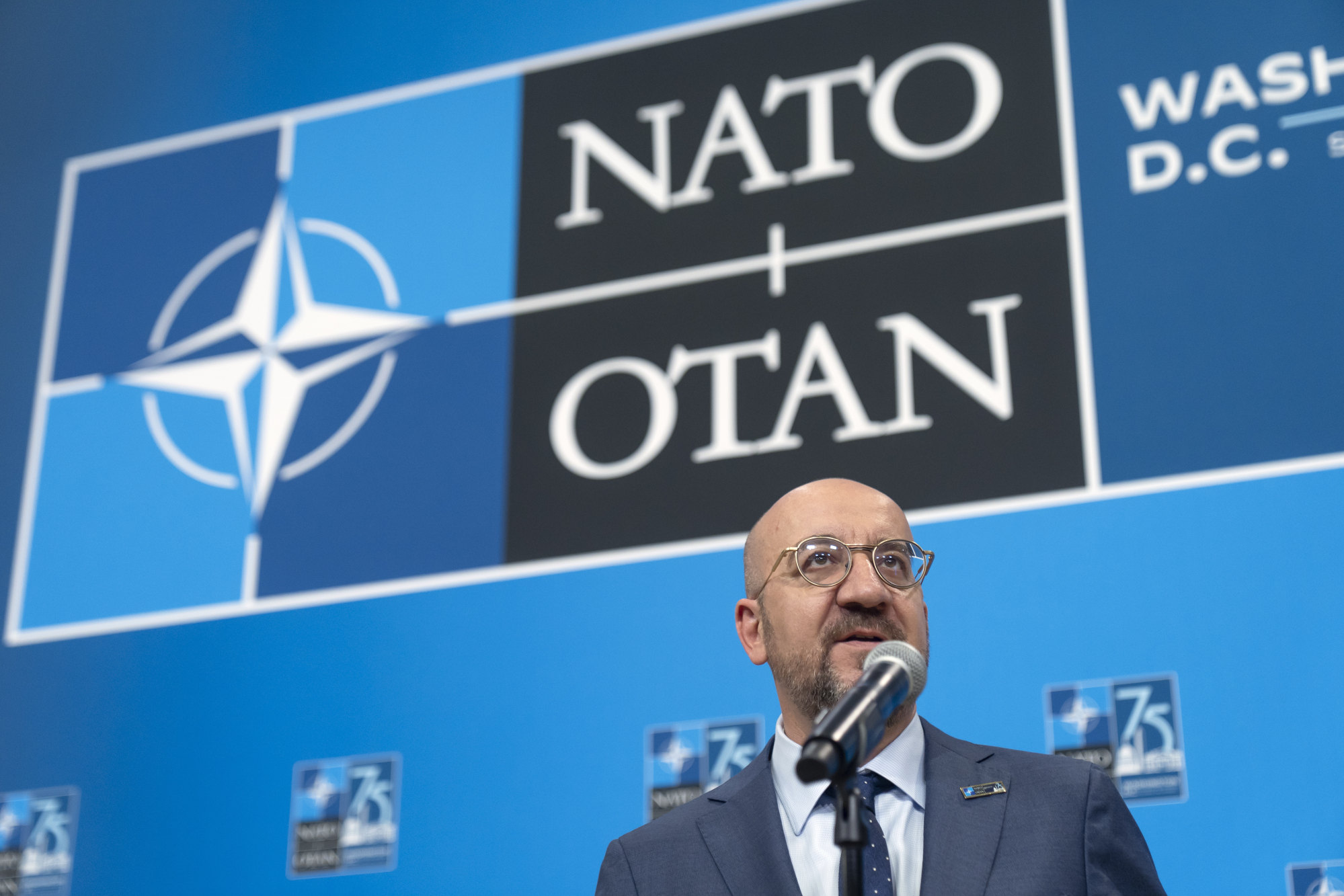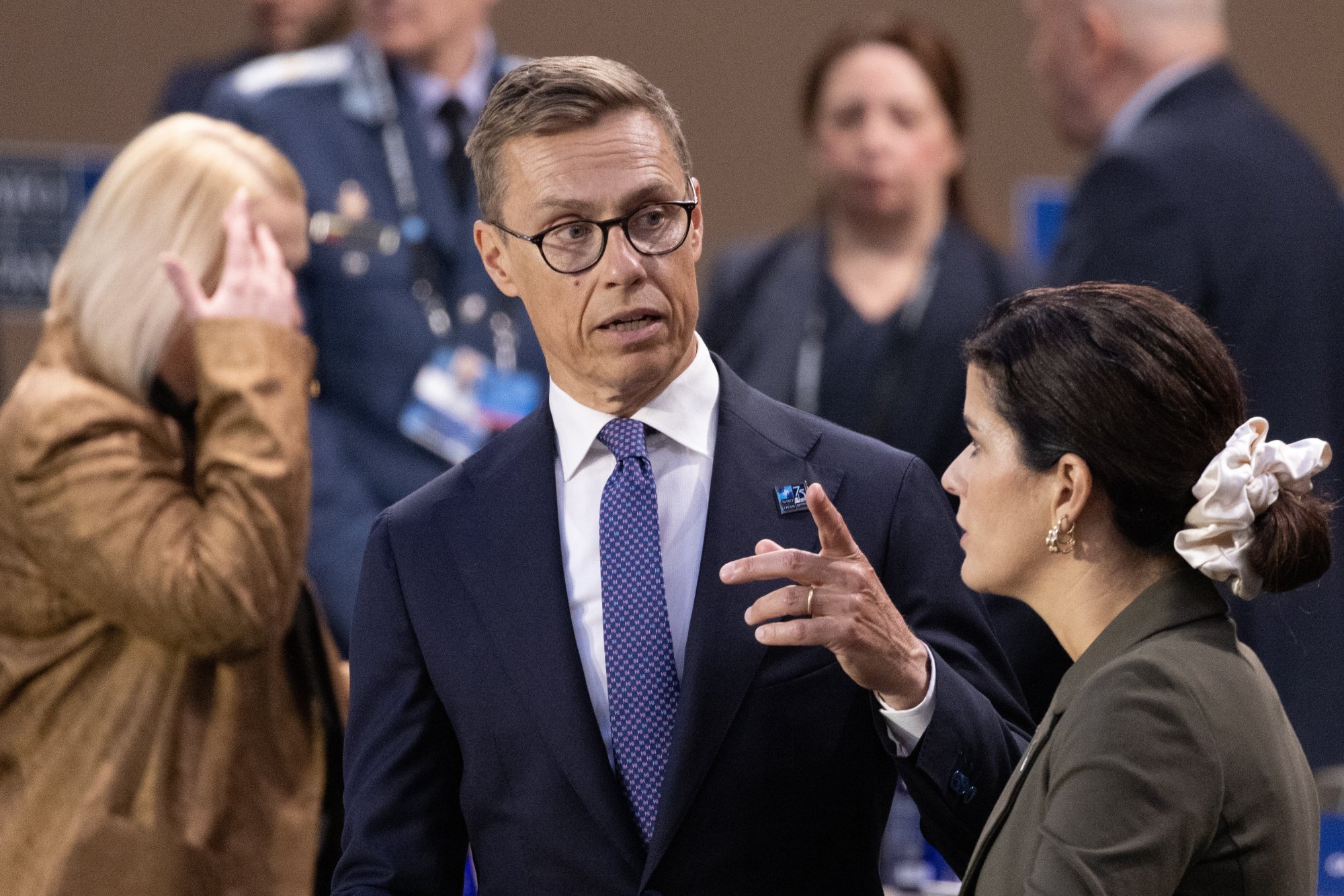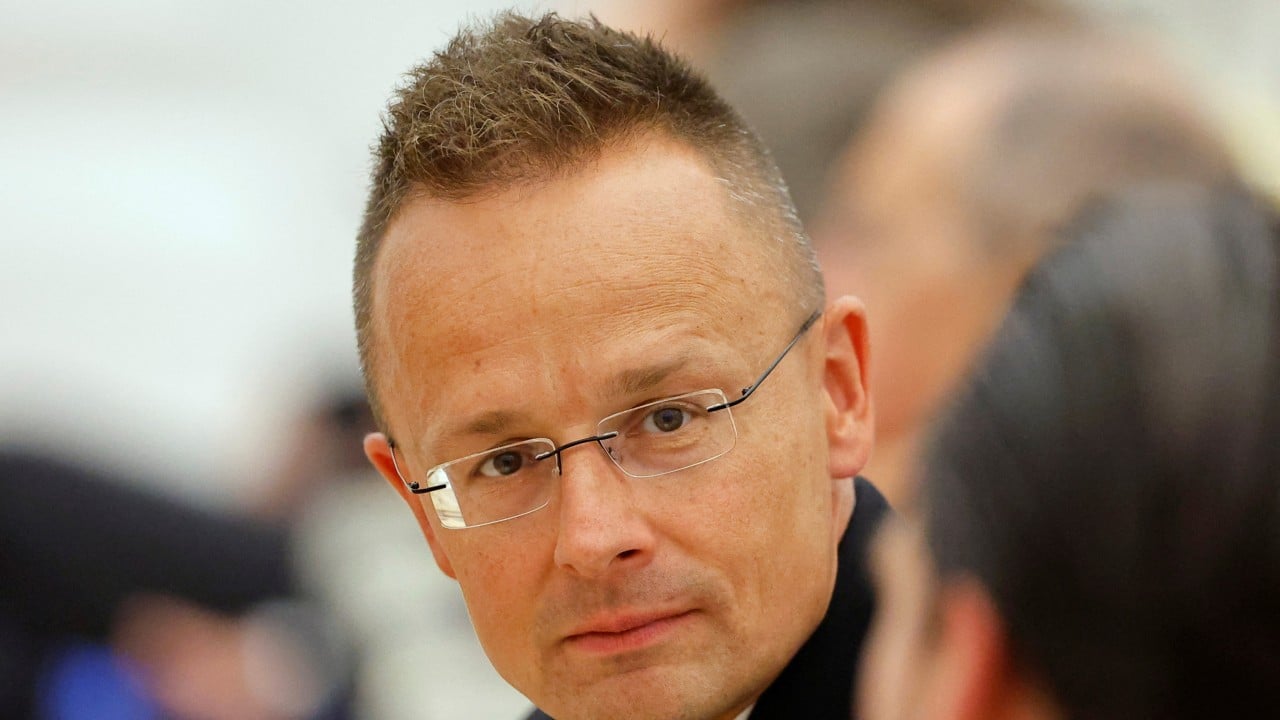Hungary opposes the North Atlantic Treaty Organisation turning into an “anti-China” coalition, the European nation’s top diplomat said on Thursday.
“Nato is a defence alliance … we can’t organise it into an anti-China bloc,” Hungarian Foreign Minister Peter Szijjarto said on the sidelines of the transatlantic security alliance’s annual summit in Washington.
Szijjarto also voiced concerns over what top Nato officials and leaders have called Ukraine’s “irreversible” path to membership, saying Kyiv’s “admission wouldn’t strengthen but weaken the unity’s alliance”.
Responding to a question from Hungarian state media, the foreign minister said there were “completely different viewpoints” on the issue.
The remarks contrasted with a strongly worded joint declaration issued by Nato on Wednesday warning China about the help it extends to Russia, whose invasion of Ukraine precipitated an ongoing war. Hungary became a Nato member in 1999.
The Nato statement came after a high-level, heads-of-state meeting on Wednesday. It said China, its interests and reputation would be negatively affected if it did not cease supplying political and material support to Moscow’s “war effort”.
Jens Stoltenberg, Nato’s secretary general, said there was “not a big difference” between sending weapons and supplying dual-use items like microelectronics that the alliance claims Moscow has used to boost its production of its defence complex.
Beijing has repeatedly rejected such accusations, calling the latest statement “unjustified and malicious”.
Just minutes before the Nato leaders convened on Wednesday, Hungarian Prime Minister Viktor Orban posted on X (formerly Twitter) that the alliance was “moving away” from its goal of maintaining peace.
Instead, Orban said, Nato was “behaving more and more like a war organisation”, adding that Hungary would not contribute towards the alliance’s allocation of aid to Ukraine.
Before flying to the American capital, Orban last week travelled to Moscow and Beijing and held peace talks with Russian President Vladimir Putin and Chinese President Xi Jinping, who called for an immediate ceasefire in Ukraine.
Orban’s unilateral moves have angered many in Europe, with Stoltenberg describing the far-right prime minister’s efforts as “unhelpful”.
As a punitive gesture, some European Union member states have refrained from sending their officials to EU meetings chaired by Hungary.
On July 1, Hungary took over the EU’s six-month rotating presidency.
When it did, Hungary adopted the slogan, “Make Europe Great Again” – reminiscent of the “Make America Great Again” campaign slogan promoted by former US president Donald Trump, a vocal Nato critic.
Trump, the presumptive Republican nominee in the US 2024 presidential election, is poised to face Biden in a rematch of the 2020 contest.
Asked about the EU members’ boycott on Thursday, Charles Michel, president of the European Council, sought to distance the bloc from Orban’s self-described “peace” initiatives.
“The rotating presidency doesn’t represent the EU at the external level,” said Michel. “This episode has shown a strong EU determination to support Ukraine, a strong determination to maintain all the efforts to pressure Russia,” Michel added.

Finland, Nato’s newest member and a long-time EU constituent, said it was not worried about frictions within the two groupings. At present, the EU and Nato have 23 members in common.
“I’m not concerned so much about the divide because Viktor is in such a distinct minority, but I fundamentally disagree with his approach and I’ll say it out loud,” said Finnish President Alexander Stubb on Thursday, referring to Orban.
“I don’t think there’s any point in having conversations with authoritarian regimes that are violating international law.”
“Viktor Orban has no mandate from the [Nato] alliance nor from the European Union to conduct any form of negotiations,” Stubb added.
Even as a crescendo of opposition to Orban builds across Europe, the Hungarian leader has not shied away from stating his preference for Trump in the coming US election. It is a preference that is understood not to be widely shared on the continent.
Stubb expressed confidence in Biden’s leadership, professing “absolutely no concerns about the capacity of the current president of the United States to lead”.

Meanwhile, Orban was reportedly slated to meet Trump in Florida on Thursday after the summit.
Trump has heaped criticism on Nato since before he became president in 2016. He has vowed to cut off American aid to Ukraine if he wins election in November.
Earlier this week, the Republican leader said he “didn’t know what the hell Nato was too much before”, but it didn’t take him “two minutes to figure it out”.
In March, Trump and Orban met at the former president’s private club and residence Mar-a-Lago in Florida. During that meeting, Trump praised Orban.
“There’s nobody that’s better, smarter or a better leader than Viktor Orban,” he said. “He’s fantastic.”
US National Security Adviser Jake Sullivan on Thursday refused to speculate whether Orban’s visits to Russia and China had been coordinated with Trump, describing the travels as “adventurism” and lacking any coordination with the Ukrainians.


